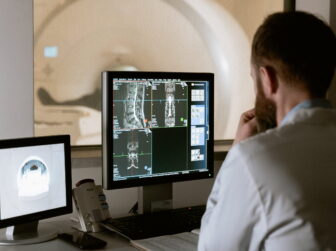Tag - Medical Internet of Things
Blog , November 21, 2023 , internet of things, IoMT, Medical Internet of Things, Medical IoT, smart hospital
Revolutionizing Healthcare with the Medical Internet of Things
The Medical Internet of Things (IoT) has the potential to significantly transform the healthcare industry by enhancing patient care, improving operational efficiency, and enabling better clinical outcomes. This technology involves connecting medical devices and equipment to the internet to collect and exchange data in real-time, allowing for remote monitoring, diagnosis, and treatment.
One of the key benefits of the Medical IoT is its ability to improve patient care by enabling continuous monitoring of vital signs and other health metrics. This allows healthcare providers to detect and address potential health issues early on, leading to better outcomes for patients. For example, wearable devices can track a patient’s heart rate, blood pressure, and activity levels, providing valuable insights into their overall health and alerting healthcare providers to any abnormalities.
In addition to improving patient care, the Medical IoT can also streamline healthcare operations and improve efficiency. By automating data collection and analysis, healthcare providers can reduce the time and resources required for manual monitoring and paperwork. This not only saves time but also reduces the risk of human error, leading to more accurate and reliable data.
Furthermore, the Medical IoT has the potential to revolutionize the way medical professionals diagnose and treat patients. By harnessing the power of artificial intelligence and machine learning, healthcare providers can analyze large amounts of data to identify patterns and trends that may be indicative of certain health conditions. This can help doctors make more accurate diagnoses and develop personalized treatment plans for their patients.
However, as with any technology, the Medical IoT also presents challenges and concerns that must be addressed. One of the main concerns is the security and privacy of patient data. With sensitive health information being transmitted over the internet, there is a risk of data breaches and cyber attacks. Healthcare providers must implement robust security measures to protect patient data and ensure compliance with regulations such as HIPAA.
Overall, the Medical Internet of Things has the potential to revolutionize healthcare by improving patient care, streamlining operations, and enabling more personalized treatment. By harnessing the power of connected devices and data analytics, healthcare providers can deliver better outcomes for patients and drive innovation in the industry.
